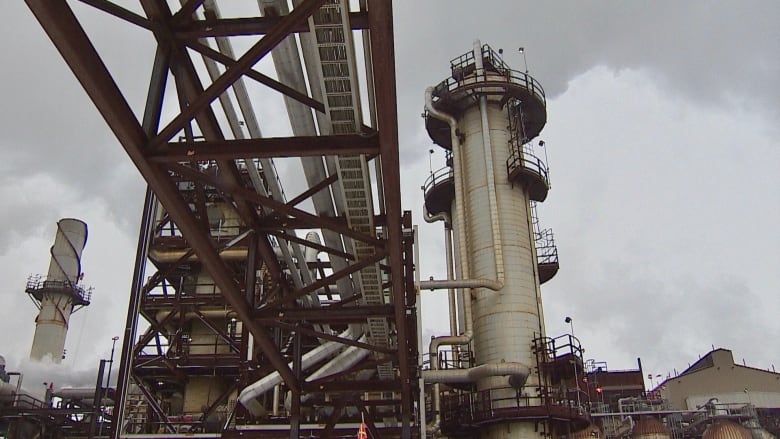Global ambitions to tackle climate change are being confronted by rising concerns about energy security, according to a new report by RBC, which is why oil and natural gas are going to be used for quite a while.

Global ambitions to tackle climate change are being confronted by rising concerns about energy security, according to a new report by RBC, which is why oil and natural gas are going to be used for quite a while.
The Russian invasion of Ukraine has sent energy prices soaring, as there are supply concerns for many commodities such as oil, natural gas and coal. As many countries grapple with energy security and affordability issues, there is less emphasis on climate change.
That’s why the authors of the report say countries like Canada now have to figure out how to produce more oil and gas in the short term, all the while trying to meet climate goals.
“Short of major additional action, oil and gas will likely remain critical and contentious energy sources for longer than some think,” the report notes.
In the last few months, there has been a renewed push by countries like Canada and the United States for more oil and natural gas production. At the same time, some countries in Europe are investing in liquefied natural gas terminals to import more natural gas and also looking at coal and oil-fired electricity to reduce reliance on Russian gas.
Global demand for oil keeps rising and is expected to increase for several more years, according to the International Energy Agency.
The RBC report highlights how many governments around the world are also offering subsidies to offset high gasoline and power prices, including “usual climate leaders” such as Germany, California, and British Columbia.

Climate change is still a priority, said RBC economist Colin Guldimann, but there isn’t as much momentum as compared to six months ago after the UN climate conference.
“Many will admit that things have changed markedly, especially in the energy space, in the last couple of months,” he said in an interview.
Canada must now thread the needle of meeting climate goals while also meeting energy needs.
Even after oil demand peaks, Guldimann said “the pace of that decline, and the steepness of how quickly that decline happens, is fundamentally uncertain.”
Investments in clean energy are happening, but instead of replacing fossil fuels, much of that energy is offset by rising consumption around the world as the population grows.
“We think energy demand is set to surge over the next couple of decades and how we meet those energy needs is really the critical question today,” he said.
“I think countries are going to struggle to switch their energy systems over to ones that are non-emitting extremely quickly. Green infrastructure takes time to build, and technologies that can replace oil are still sort of coming to the fore.”
The RBC report calls for more ambition to curb emissions, not only from the oilpatch, but other sectors too such as building retrofits, zero-emission vehicle subsidies and more transmission lines to move clean power around the country.
On Monday, credit ratings agency Moody’s said it expects oil producers to generate record profits and free cash flow this year — and oil prices could remain high for the next 12 to 18 months.
Oil prices dropped by more than five per cent at one point on Monday as lockdowns in China are dampening economic activity. As commodity prices fluctuate so wildly, some oil companies could delay production increases.
“I wouldn’t be surprised to see if a lot of these companies say ‘You know what, let’s defer this decision where we have to expand our spending,” said Jeremy McCrea, an analyst with Raymond James, “which ultimately will keep oil and gas prices higher, longer.”


